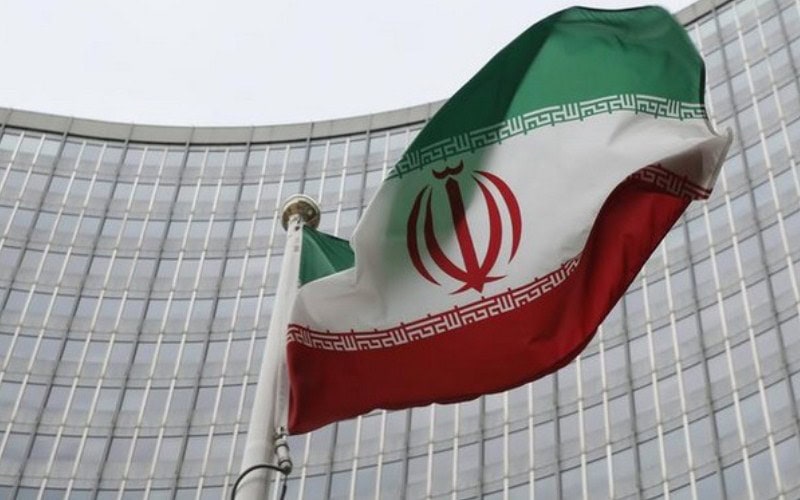London: Iran ignored mounting European appeals on Saturday to release a British-flagged tanker as London denounced a “dangerous move” and summoned a senior diplomat of the Islamic republic.
The Islamic Revolutionary Guard Corps said it seized the Stena Impero on Friday for breaking “international maritime rules” in the Strait of Hormuz, a chokepoint for about a third of the world’s sea-borne oil.
The oil tanker was impounded off Bandar Abbas port for allegedly failing to respond to distress calls and turning off its transponder after colliding with a fishing vessel, authorities said, adding an investigation had been launched.
It was one of two ships Britain said Iran seized in the Gulf, but the UK owner of the Liberian-flagged Mesdar said it was released after being boarded by armed personnel.
That came hours after a court in the British overseas territory of Gibraltar said it would extend by 30 days the detention of an Iranian tanker seized by British authorities in the Mediterranean two weeks ago on allegations of breaching EU sanctions against Syria.
In London, the Foreign Office said Saturday it had summoned Iran’s charge d’affaires.
British Foreign Secretary Jeremy Hunt said the seizure of the ship showed “worrying signs Iran may be choosing a dangerous path of illegal and destabilising behaviour”.
Britain’s emergencies commitee met on Friday to discuss the affair and was to meet again Saturday.
Hunt said he had spoken to Iranian Foreign Minister Mohammad Javad Zarif “and expressed extreme disappointment that having assured me last Sat(urday) Iran wanted to de-escalate situation they have behaved in the opposite way”.
Germany and France urged Iran to release the tanker, whose seizure Berlin called a “dangerous further aggravation of an already tense situation”.
The European Union voiced “deep concern”.
US President Donald Trump said Friday’s incident “only goes to show what I’m saying about Iran: trouble. Nothing but trouble.”
But Iran remained defiant.
Zarif said Iran’s actions were taken to “uphold” international maritime rules.
“It is IRAN that guarantees the security of the Persian Gulf & the Strait of Hormuz. UK must cease being an accessory to #EconomicTerrorism of the US,” he tweeted.
– Soaring tensions –
Tensions in the Gulf have soared since May, with Trump calling off air strikes against Iran at the last minute in June after the Islamic republic downed a US drone.
The United States has also blamed Iran for multiple attacks on tankers in the Gulf.
Iran said it had opened an investigation on Saturday into the newly-seized oil tanker.
The Swedish-owned ship “has 23 crew and they are all on the ship,” said Allah-Morad Afifipoor, director-general of the Hormozgan province port and maritime authority.
The Philippines said 18 Indians, three Russians, a Latvian and a Filipino were aboard.
Manila, New Delhi and Riga said they were in touch with Tehran to seek the release of their nationals.
The fishermen had issued a distress call after the collision and contacted the port authority when they “didn’t receive any response”, said Afifipoor, quoted by Fars news agency.
The Stena Impero’s owner said it was in “international waters” when it was “attacked by unidentified small crafts and a helicopter”.
The incident came as Trump and US officials insisted, despite denials from Tehran, that the US military had downed an Iranian drone alleged to have been threatening the amphibious assault ship USS Boxer.
The Revolutionary Guard released footage it said disproved the US claims.
The seven-minute video, apparently shot from high altitude, shows a convoy of ships the Guards said they were tracking as they passed through the strait.
The vessels could not be immediately identified, although one resembles the Boxer.
– US troops in Saudi –
As tensions soared, Iran’s arch-rival Saudi Arabia said it would once again host US troops to boost regional security.
The Pentagon said the deployment “ensures our ability to defend our forces and interests in the region from emergent, credible threats.”
The US military also said its patrol aircraft were monitoring the Strait, and announced a “multinational maritime effort” to ensure freedom of navigation in key waterways.
The escalation comes more than a year after Washington unilaterally withdrew from the 2015 Iran nuclear agreement and began ratcheting up sanctions against Tehran.
Earlier this month, Iran exceeded the deal’s caps on uranium enrichment, aiming to pressure the remaining parties — including Britain, France and Germany, to make good on promises to help prop up its economy.
Tehran has repeatedly threatened to close the Strait of Hormuz if attacked.

